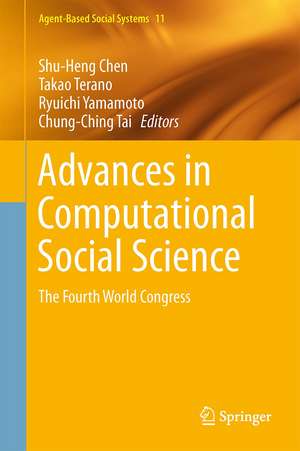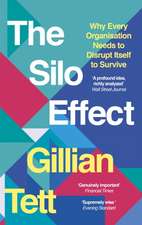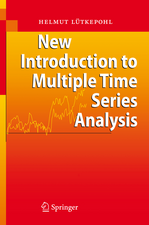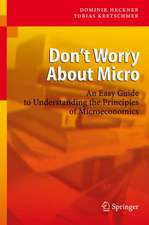Advances in Computational Social Science: The Fourth World Congress: Agent-Based Social Systems, cartea 11
Editat de Shu-Heng Chen, Takao Terano, Ryuichi Yamamoto, Chung-Ching Taien Limba Engleză Hardback – 11 iun 2014
Toate formatele și edițiile
| Toate formatele și edițiile | Preț | Express |
|---|---|---|
| Paperback (1) | 948.61 lei 6-8 săpt. | |
| Springer – 23 aug 2016 | 948.61 lei 6-8 săpt. | |
| Hardback (1) | 961.41 lei 6-8 săpt. | |
| Springer – 11 iun 2014 | 961.41 lei 6-8 săpt. |
Din seria Agent-Based Social Systems
- 20%
 Preț: 1008.77 lei
Preț: 1008.77 lei - 18%
 Preț: 942.94 lei
Preț: 942.94 lei - 20%
 Preț: 990.62 lei
Preț: 990.62 lei - 24%
 Preț: 593.11 lei
Preț: 593.11 lei - 15%
 Preț: 642.83 lei
Preț: 642.83 lei - 18%
 Preț: 731.91 lei
Preț: 731.91 lei - 24%
 Preț: 790.89 lei
Preț: 790.89 lei - 24%
 Preț: 583.46 lei
Preț: 583.46 lei - 18%
 Preț: 723.87 lei
Preț: 723.87 lei - 15%
 Preț: 638.89 lei
Preț: 638.89 lei - 20%
 Preț: 989.46 lei
Preț: 989.46 lei - 15%
 Preț: 578.24 lei
Preț: 578.24 lei - 15%
 Preț: 642.51 lei
Preț: 642.51 lei - 18%
 Preț: 951.29 lei
Preț: 951.29 lei - 20%
 Preț: 986.66 lei
Preț: 986.66 lei - 18%
 Preț: 946.55 lei
Preț: 946.55 lei - 20%
 Preț: 986.99 lei
Preț: 986.99 lei
Preț: 961.41 lei
Preț vechi: 1172.45 lei
-18% Nou
Puncte Express: 1442
Preț estimativ în valută:
183.96€ • 192.07$ • 152.25£
183.96€ • 192.07$ • 152.25£
Carte tipărită la comandă
Livrare economică 04-18 aprilie
Preluare comenzi: 021 569.72.76
Specificații
ISBN-13: 9784431548461
ISBN-10: 4431548467
Pagini: 384
Ilustrații: XXXIII, 349 p. 134 illus., 49 illus. in color.
Dimensiuni: 155 x 235 x 27 mm
Greutate: 0.9 kg
Ediția:2014
Editura: Springer
Colecția Springer
Seria Agent-Based Social Systems
Locul publicării:Tokyo, Japan
ISBN-10: 4431548467
Pagini: 384
Ilustrații: XXXIII, 349 p. 134 illus., 49 illus. in color.
Dimensiuni: 155 x 235 x 27 mm
Greutate: 0.9 kg
Ediția:2014
Editura: Springer
Colecția Springer
Seria Agent-Based Social Systems
Locul publicării:Tokyo, Japan
Public țintă
ResearchCuprins
Online Communities and Social Media.- Stock BBS Factor Model Using Principal Component Score.- How Consumer-Generated Advertising Works: An Empirical Agent-Based Simulation.- Understanding Citizens’ Channel Choice of Public Service Delivery: An Agent-Based Simulation Approach.- Cyclical Pattern of the Rise and Fall of an Online Community Due to a Troll.- Economic and Social Networks.- On the Indeterminacy of the Clearing Payment Vectors in Numerical Simulations on Financial Networks.- Three-State Opinion Formation Model on Adaptive Networks and Time to Consensus.- Achieving Consensus with Segregation in Multiple Social Contexts.- Behavioral Finance and Macroeconomics.- How Does Overconfidence Affect Asset Pricing, Volatility, and Volume?.- Analyzing the Validity of Passive Investment Strategies Under Financial Constraints.- Macroeconomic Forecasting with Agent-Based Models: Prediction and Simulation of the Impact of Public Policies on SMEs.- Influence of the Corporation Tax Rate on GDP in an Agent-Based Artificial Economic System.- Demographics, Health Care, Linguistics, and Sociology.- Semi-Artificial Models of Populations: Connecting Demography with Agent-Based Modelling.- An Agent-Based Approach for Patient Satisfaction and Collateral Health Effects.- Complex Evolutionary Pathways in Interacting Linguistic Communities.- Socio-Cognitive Influences on Social Stratification.- Participatory Modeling.- A Computational Study of Rule Learning in “Do-It-Yourself Lottery” with Aggregate Information.- Agent-Based Social Simulation as an Aid to Communication Between Stakeholders.- Hybrid Approach of Agent-Based and Gaming Simulations for Stakeholder Accreditation.- Methodology.- When Does Simulated Data Match Real Data?.- Towards Validating a Model of Households and Societies in East Africa.- Social Simulation Comparison in Arbitrary Problem Domains: First Steps Towards a More Principled Approach.
Textul de pe ultima copertă
This volume is a post-conference publication of the 4th World Congress on Social Simulation (WCSS), with contents selected from among the 80 papers originally presented at the conference. WCSS is a biennial event, jointly organized by three scientific communities in computational social science, namely, the Pacific-Asian Association for Agent-Based Approach in Social Systems Sciences (PAAA), the European Social Simulation Association (ESSA), and the Computational Social Science Society of the Americas (CSSSA). It is, therefore, currently the most prominent conference in the area of agent-based social simulation. The papers selected for this volume give a holistic view of the current development of social simulation, indicating the directions for future research and creating an important archival document and milestone in the history of computational social science. Specifically, the papers included here cover substantial progress in artificial financial markets, macroeconomic forecasting, supply chain management, bank networks, social networks, urban planning, social norms and group formation, cross-cultural studies, political party competition, voting behavior, computational demography, computational anthropology, evolution of languages, public health and epidemics, AIDS, security and terrorism, methodological and epistemological issues, empirical-based agent-based modeling, modeling of experimental social science, gaming simulation, cognitive agents, and participatory simulation. Furthermore, pioneering studies in some new research areas, such as the theoretical foundations of social simulation and categorical social science, also are included in the volume.
Caracteristici
Collects the most up-to-date information on the development of agent-based methodology, modeling and simulation in interdisciplinary social science Is the post-conference publication of the currently most prominent conference in computational social science or social simulation Is the third volume of Springer’s Series on Agent-Based Social Systems, forming a valuable collection on social simulation for libraries and research institutions Includes supplementary material: sn.pub/extras















